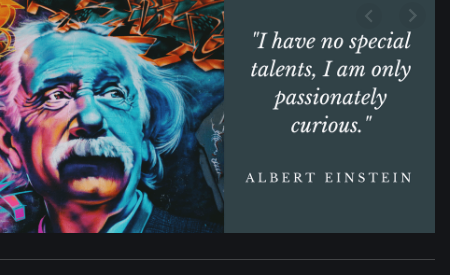We are born curious, but when answers are valued more than questions, we forget how to keep it going. As youngsters, we’re naturally curious–it’s how we grow and learn–but by the time we start school that sense of wonder starts to escape us. Make curiosity the key to continuing the learning process.
Stupid people tend to overestimate their competence, while smart people tend to sell themselves short. As Shakespeare put it in “As You Like It“: “The fool doth think he is wise, but the wise man knows himself to be a fool.” Do you wish to become a highly curious and intelligent thinker?
So how can we retrain ourselves to develop our habit of curiosity and be more curious? By forming new habits, obviously. You knew that, of course.
Answers are more valued than inquisitive thought, and curiosity is trained out of us.
While we’re born curious, experts say we can relearn the trait.
Every person can describe at least one moment that stands out in their memory where someone demonstrated true and unbridled curiosity. Some of my greatest memories of my staff’s curiosity have come at the most unexpected times and most pure of circumstances.
Here are 12 simple things to do to teach curiosity.
What we know about motivation
Everybody has a personal and evolving profile of abilities, including areas of strength and weakness in intellectual, social, emotional, physical, and behavioral domains.
Contrary to what many people think, intelligence and creativity are not fixed at birth. They develop step by step over time. They require relevant learning opportunities, hard work, and a willingness to learn from setbacks.
They also demand preparation, communication, questions (and answers), reflection, practice, and patience. And, encouragement!
These understandings of what can propel both intelligence and creativity have action and desire at the core. It is each person’s choice whether to extend personal experiences in purposeful ways so as to augment intelligence and fuel creativity.
There are no limits, only horizons.
However, when it comes to motivating and nurturing capacities, it’s important to provide encouragement—to show confidence, demonstrate willfulness, and convey positive messages.
Help people understand why something is worth pursuing
It may be an assignment, a creative endeavor, a recreational activity, or something else altogether. If there is buy-in—that is, if people perceive a task as being relevant or meaningful—then they will be more motivated to see it through.
Motivation is often associated with triggers such as need, instinct, curiosity, or encouragement. Learning opportunities should be interesting so kids can experience the kind of motivation that comes from personal engagement.
Praise should be genuine and constructive
Vague compliments don’t really propel us forward in the same way that constructive and direct feedback does.


